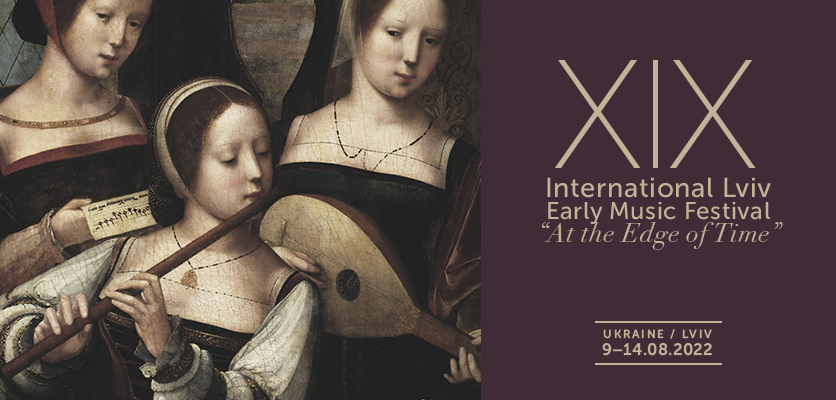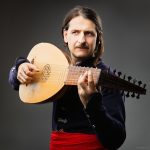Duma Ukraine
Концертний зал Людкевича
150–300

The Ukrainian musical tradition dates back to the old times. Thus, the monophonic chants of knights before battle, which originated in the Middle Ages, functioned in our culture even in early modern times. This is, in particular, a kondak to the “Holy Mother of God, the Reborn Voivode”. The recital concert by the famous performer and cultural figure Taras Kompanichenko will combine these compositions, as well as Ukrainian epics, such as “Duma about Khvedir Bezridny”. The roots of psalmodic works go back to the Middle Ages, but they actively functioned also in the 16th-18th centuries.
The performer chooses the oldest known records, among them “Duma about the Death of Prince Koretskyi near Tsetsora”. He says, “These are works in which moral and ethical problems faced by a hero, or a certain social group, in this case, knights, are often solved on historical background. This is, in fact, a story for knights about what warriors face during campaigns.”
Separately, Taras Kompanichenko notes a complex of so-called “hospitalist” themes that were characteristic of both Ukraine and Europe during the Middle Ages and early modern times. The things that worried the people of that time were both the art of a good heroic death and a good death as an example to follow. “This is what is said even now in the texts of church services, litanies,” Taras recalls, “We ask for a Christian end of our life and a good answer at the Last Judgment.” Dumas “About the Death of the Samara Brothers”, “Duma about the Death of a Cossack in the Kodyma Valley”, and the famous “Duma about the Escape of the Three Brothers from Azov”, these works also tell about how warriors could save themselves and their brothers, knights, by repenting for the sins. They set an example of a wise leader who is responsible for himself and his army; he is ready to sacrifice himself in order to save others and gain eternal life (“Duma about Oleksiy Popovych Pyriatynskyi”).
In addition, the program will include songs from the Pochaiv “Bohohlasnyk” of the Basiliyan Fathers, dated 1790–1791. These will be both anonymous and author’s works, based on the words and music of Lukash Dlonskyi, and Ivan Moravskyi. Also chants of the 17th–18th centuries will be performed, written by Stefan Yavorskyi, Ivan Mazepa, Teofan Prokopovych, Dymitrii Tuptal, Vasyl Dovhovych, Hryhoriy Skovoroda.
The works will be performed to the accompaniment of the Renaissance lute, Baroque lute, Ostap Veresai’s bandura, ancient bandura and lyre.
Artist:
- Taras Companichenko, lute, bandura, lyra
Program:
- Ukrainian ancient chants, warrior songs and songs from the manuscript collections of the 17th-18th centuries
Moderator: Polina Kordovska
Live broadcast provided by:
Andrij Zelenyj, camera
Mykola Khshanovskyi, live broadcast director
Marian Lesiuk, sound director
Bohdan Sehin, producer
***
“Ukraine–2022. Muses Are Not Silent” is a concert series in support of Ukrainian musicians during the russian armed aggression. Online concerts will become a platform for the uniting of the Ukrainian music community, as many musicians participating in these concert programs have become internally displaced people and have found shelter in Lviv.
We provide a free opportunity for the whole world to watch concerts on the official YouTube channel of the Lviv National Philharmonic. At the same time, we suggest our listeners from abroad make charitable donations to Ukrainian musicians who have stayed here in Ukraine.
CHARITABLE HELP FOR UKRAINIAN MUSICIANS: Bank details | PayPal | Patreon




